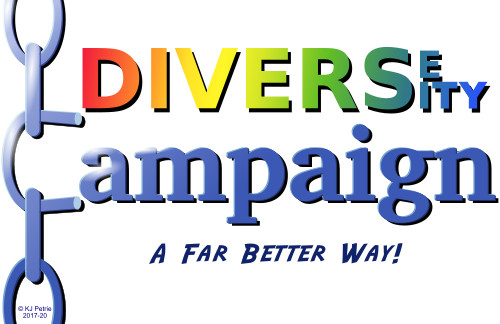Opinion
14th February 2020
Miller Judgement still Chilling
The High Court has ruled Humberside Police acted unlawfully in the way it treated Harry Miller over complaints about sarcastic social media comments he made over gender identity concepts. However, on a second matter, Mr Miller’s complaint about the guidelines under which the Police had acted, the court held these were useful and proportionate.
At one level, from the perspective of a High Court Judge accustomed to exercising judgement over the precise interpretation of the law, it is highly probable that guidance intended to ensure potential risks are recorded and available for inspection are reasonable and serve a useful service in allowing danger to the public to be spotted and avoided. Unfortunately, although that is the intended purpose behind such guidelines and the legislation informing them, that is unlikely to be the effect their implementation will have. In practice, they are likely to have the same disproportionate and chilling impact on ordinary people as the police action the judge condemned so firmly. I presume that is why Mr Miller has already decided to appeal.
The reason for this effect is simple: businesses, charities, and their legal advisers are not in the fine judgement business. They have responsibilities to avoid risk. Unless discriminating against someone in a public context on the basis ot their politics is seen as equivalently serious to discrimination on the more specifically defined Protected Categories, so the balance of risk in getting it wrong is as serious in both directions, organisations will not weigh up risks in a fair or proportionate way. Instead, they will err on the side of safety. Generally, these bodies do not seek nuanced judgements. They seek certainty. In certainty they feel safe. So do legal advisers.
Taking on an employee or volunteer who has anything at all against them in a DBS check will almost always be seen as a greater risk than turning them away and finding someone else without such a smear on their character. If such a smear can be acquired simply for expressing unfashionable views or challenging an unproven assertion people will be afraid to do so and public scrutiny of influential elites will suffer. The danger of losing a free society is real. Many would argue that is already happening.
In today’s identity-driven politics, vicious attacks on perceived opponents are commonplace. As a result, people in one identity grouping will often mount a vicious attack against members of another, and these attacks can be both physical and emotional. That is not new; there has always been a tendency for some people to seek to bully those they see as different. Generally, society has always seen such targetting and bullying as antisocial, but enough people have tolerated it for it to remain normal in certain social contexts. Such tolerance is directly opposed to Diverse Diversity. Bullying is never acceptable.
Pseudo Liberals confuse such bullying with holding or arguing contrary views. They are indeed separate issues. It does not follow that because group A targets group B unfairly or violently, group B must somehow be beyond reproach and protected from all criticism. Nor is it legitimate to attack or threaten people who criticise group B on the basis that by doing so they might encourage group A. Nor is bullying people in group A justified. Two wrongs don’t make a right. Rather, we need to concentrate on punishing and discouraging the bullying, by whomever of whomever. Intimidation or violence cannot be justified by the identity of the intimidator. It must not work like that.
Silencing through fear people who find certain opinions absurd and say so is not a route to a free or fair society. That can only be achieved by showing evidence to refute the criticism. If such evidence is not available, intimidation is not only no substitute; it cannot even be justified.
Yet, given that most people do not apply the careful criteria of a High Court Judge in understanding what they can or cannot safely say, but will err on the side of avoiding controversy they fear could cost them dearly in future, it is likely that any prospect of finding oneself on a negative record for daring to speak out would be enough to deter most people from free speech. If police attention produces a chilling effect on democracy, so, surely, does the record of an incident as “hate” on an official record when no malice was evident and no likelihood of anyone being harmed existed.

